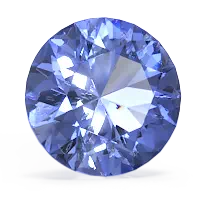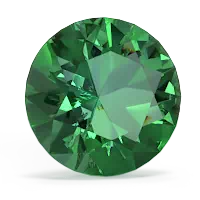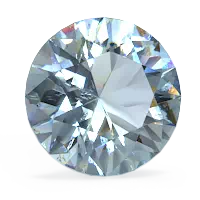


Tanzanite is the gem of fortune and luck. A tanzanite pendant is said to ease stress and free one from bad habits. Emerald is associated with Venus, the Greek goddess of love and beauty. They say an emerald pendant can protect lovers from unfaithfulness. Wearing an aquamarine is said to help couples smooth out their differences and reawaken their love for each other making an aquamarine pendant the perfect anniversary present.